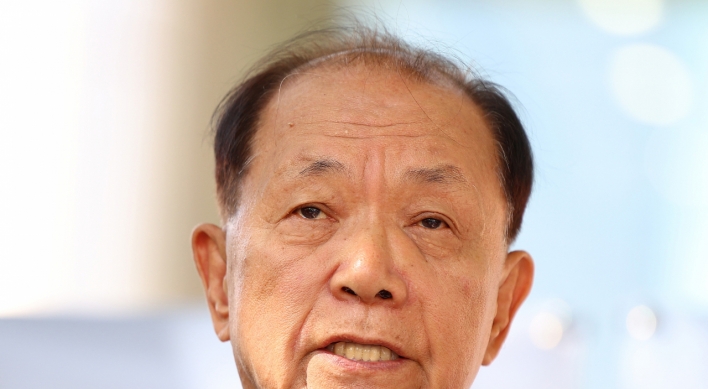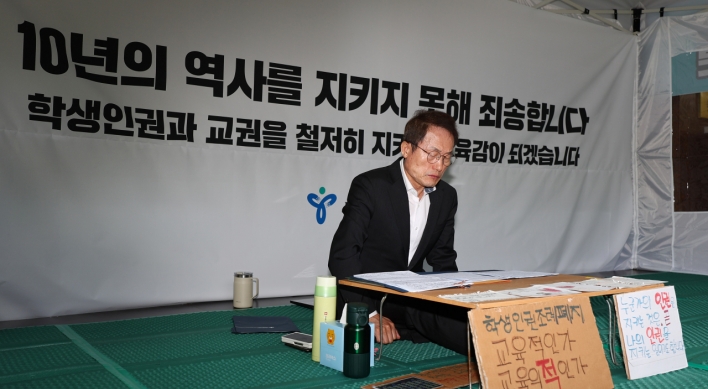By Sasha Frere-Jones
Los Angeles Times
M.I.A.‘s single, “Borders,” isn’t the official theme song for journalist Atossa Araxia Abrahamian‘s nonfiction debut, “The Cosmopolites” (Columbia Global Reports), but we can pretend it is. In the first verse, M.I.A. asks, “Borders -- what’s up with that?” “The Cosmopolites” is one answer.
Both the book and the song are reactions to the movement of populations, the increasingly permeable divisions among states. This condition bridges classes and countries: It‘s not just refugees trying desperately to reach Europe but international elites leveraging the power of passports for personal ends. For the wealthy depicted in this brief book, borders can be erased with money, which buys citizenship. For the disenfranchised, those same commercial citizenships can be used against them, to turn them away from one country and toward another. “The Cosmopolites” documents in detail one of the stranger aspects of a world that cannot decide what a nation or a native is.
Los Angeles Times
M.I.A.‘s single, “Borders,” isn’t the official theme song for journalist Atossa Araxia Abrahamian‘s nonfiction debut, “The Cosmopolites” (Columbia Global Reports), but we can pretend it is. In the first verse, M.I.A. asks, “Borders -- what’s up with that?” “The Cosmopolites” is one answer.
Both the book and the song are reactions to the movement of populations, the increasingly permeable divisions among states. This condition bridges classes and countries: It‘s not just refugees trying desperately to reach Europe but international elites leveraging the power of passports for personal ends. For the wealthy depicted in this brief book, borders can be erased with money, which buys citizenship. For the disenfranchised, those same commercial citizenships can be used against them, to turn them away from one country and toward another. “The Cosmopolites” documents in detail one of the stranger aspects of a world that cannot decide what a nation or a native is.

We recently spoke by phone; the following conversation has been edited for length and clarity.
Q: What does this book tell us about borders and citizenship in the 21st century?
A: “The Cosmopolites” looks at the relatively new phenomenon of buying and selling citizenship. This can be shocking to a people who think of their country as being somehow meaningful or integral to their identity as individuals, as citizens. It turns out that there’s a big market for buying and selling of citizenship; there are two tiers within this market. The top tier involves mostly small, poor countries selling citizenship with full rights and privileges to wealthy people who have a couple hundred thousand on hand to buy a passport of convenience. Very rich people, ultra-high-net-worth individuals, can obtain a second or third citizenship, say, in a Caribbean country or an EU country. They use that to save on taxes, to be more mobile, to send their kids to study abroad. This is all clean and above board.
Q: Were corporations looking for tax shelters the first way this kind of work-around happened?
A: Yes, we‘ve been doing this for a long time; this is just the next step. For the very wealthy, citizenship has become a convenience and not a commitment. In less glamorous news, in the Gulf States, in the Middle East, the Emirates, Kuwait, Saudi Arabia -- these countries all have stateless people living within their borders. These people are stateless for different reasons. Some moved into states illegally and through generations became stateless because they could no longer show links to any other state. But there are many people who were born in a country, whose grandparents were even born there but have been denied the right to become a citizen for a bunch of reasons, mostly political ones. There’s racial discrimination, religious discrimination, and a real economic concern that the more citizens these states have, the more benefits they have to disperse. One way to work around this, given the existence of a market for citizenship, is that countries are buying foreign citizenship for their stateless people.

Q: Which is what happened with the population in the Emirates.
A: In 2006, the ruler of the Emirates made public statements to the effect of “We want to solve the ‘bidoon’ problem. We want to make sure people get documented, and we don‘t want anyone to be stateless.” “Bidoon” is the Arabic world for “without” -- people who have no nationality or citizenship, which also means they don’t have the right to travel abroad. They are at once not recognized by the state they‘ve always lived in and cannot leave it because they can’t cross borders without a passport. One of the ways the Emirates started thinking about solving the problem was to find the ‘bidoon’ foreign citizenships. Not every country is giving citizenship to a bunch of stateless people they‘ve never met, but what the book gets into is that thanks to one intermediary, this middle man, some of the ’bidoon‘ in the United Arab Emirates obtained Comoro Islands citizenship.
The Comoro Islands are an archipelago in the Indian Ocean, about 200 miles east of Africa, not far from Madagascar. It’s one of the most forgotten places on Earth. I traveled there -- It‘s beautiful but anarchic: There isn’t much in the way of infrastructure or government. In 2007, a Syrian French businessman named Bashar Kiwan went to the islands with his team. They proposed to the government that they could sell passports to the Emirates in exchange for a lot of money that would then go toward infrastructure and development. The Comoros were so broke that they decided to go ahead with this plan. It is unclear how many people have these passports, but some say up to 100,000 stateless people are now Comoro Island citizens despite never having been there.
Q: What‘s the most dystopian version of citizenship dissolving into capital? I mean, how many people would even fit on these islands if all the so-called citizens showed up?
A: Not many. The islands don’t have the infrastructure. I think what this reveals is that for all of our talk of a globalized world and free trade and borderless life, borders do very much exist for poor and middle-class people. For the rich, borders exist less and less now because you can pay money to effectively flatten them. Capital can flow freely from one part of the world to another, but humans can‘t necessarily do that unless they’re the ones who control capital and have a lot of money to buy their way into the remote and invisible corners of the world.
(Tribune Content Agency)





![[KH Explains] No more 'Michael' at Kakao Games](http://res.heraldm.com/phpwas/restmb_idxmake.php?idx=644&simg=/content/image/2024/04/28/20240428050183_0.jpg&u=20240428180321)












![[Herald Interview] Mistakes turn into blessings in street performance, director says](http://res.heraldm.com/phpwas/restmb_idxmake.php?idx=652&simg=/content/image/2024/04/28/20240428050150_0.jpg&u=20240428174656)
